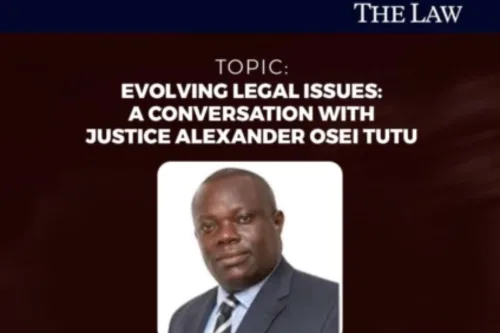
High Court Judge, His Lordship Justice Alexander Osei Tutu argues that the tradition of women adopting their husband’s surnames has become obsolete in contemporary society. He highlights legal reforms that have emancipated women from traditional limitations, empowering them to live and act autonomously without being subordinated to their husband’s authority.
In an interview with Joy News on The Law, Justice Osei Tutu elaborated, stating, “For many years women have been subdued and that people don’t know when they use Mrs. If you marry under the ordinance it’s presume that you must change your name and adopt the name of your husband.
“The question I ask is, what is the relevance of adopting your husband’s name now? Women should have their own identity. In the past, women adopted their husband’s names because the law required it for certain activities, but now women can do everything independently,” he said.
He asserted that early first-century beliefs did not include this practice. ”As I said, it is an English custom that was intended to demean women. However, its significance has diminished, and we need to reconsider adopting ‘Mrs.’ and using the husband’s name. Even in Islam, it is not permitted,” he said.
He explained, “If you want to use the Bible to justify it, you may also get it wrong as nowhere in the Bible does it state that a woman must change her name upon marriage.”
He explained that coverture laws historically prevented married women from performing lawful acts independently. “Women could not do anything without their husbands,” he stated.
Mr. Osei Tutu pointed out that this regulation endured for many centuries until legislation in the 19th century commenced empowering women to act autonomously. “For instance, the Married Women’s Property Act enables women to possess property in their own right. Even in the United States, up to 1930, women were unable to acquire passports without the consent of their spouses. There were numerous restrictions imposed by the law on women’s actions.”
“But fortunately, all these disabilities have been lifted. Women can now do everything independently,” he added. “So it is not biblical, it is not Islamic, and legally, it has lost its relevance.”





















